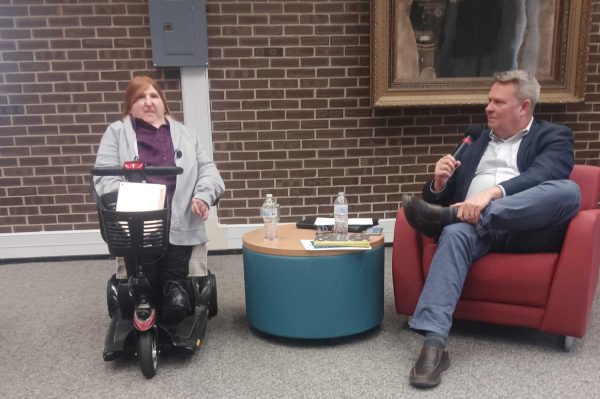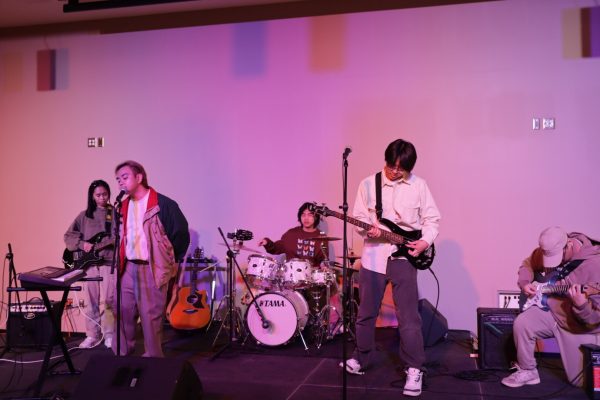‘Valley’ shows unseen side of Iraq
October 3, 2007
Rating 7/10
Writer and director Paul Haggis has tackled controversial issues in his recent films.
He addressed euthanasia in “Million-Dollar Baby,” race relations in “Crash” and now, in his new film, “In the Valley of Elah,” he takes on an issue that may be the most important and relevant to American society today: the psychological effects the Iraq war has on American soldiers.
Hank Deerfield (Tommy Lee Jones) finds out his soldier son has gone AWOL after coming home from a tour of duty in Iraq. Seeing this as uncharacteristic, Deerfield goes to investigate his son’s whereabouts and discovers his son has been brutally murdered.
This is not an open-and-shut case. With the help of compassionate detective Emily Sanders (Charlize Theron), Deerfield begins to uncover a web of lies that ultimately points in the direction of a military cover-up.
Tommy Lee Jones is always typecast as the “good ol’ boy” in movies where there shouldn’t be that kind of character. In this film, Jones is able to play the role of his career. No one this year deserves an Oscar nomination more than Jones for his heartbreaking and genuine portrayal of Deerfield.
Charlize Theron also makes up for her unforgivable performance in “Aeon Flux” and proves she is an actress who is not afraid to take career risks. With memorable performances from Susan Sarandon, Jason Patric and Josh Brolin, the film feels like an ensemble cast of actors who have never been better.
The movie moves along at a slow, methodical pace and is backed up by an absolutely haunting score. Certain events constantly dare the viewer to guess what the next chain of events will be. The story is never dull, allowing the audience to absorb every emotion and thought that the each character feels.
The movie’s only problem is that it’s almost too real. It sounds ignorant and almost selfish to say, but this movie which is built on such raw emotion and passion ends on an anti-climactic note. The closure came subtly and without warning. It didn’t connect as much as the rest of the film did.
“In The Valley Of Elah” is revolutionary in the sense that it takes an issue that is already a heated debate and engulfs the whole thing in flames. The audience doesn’t know what it’s like in Iraq.
This movie portrays true human nature when someone is fighting for their life. It’s also one of the first to question the psychological effects of the Iraq war.
The title takes its name from a biblical story about good vs. evil, when David fought Goliath in the Valley of Elah. But the good and evil pertaining to Iraq in this film is not America vs. Iraq.
It’s the good and evil within all of us that comes out when we need to react, or die.










